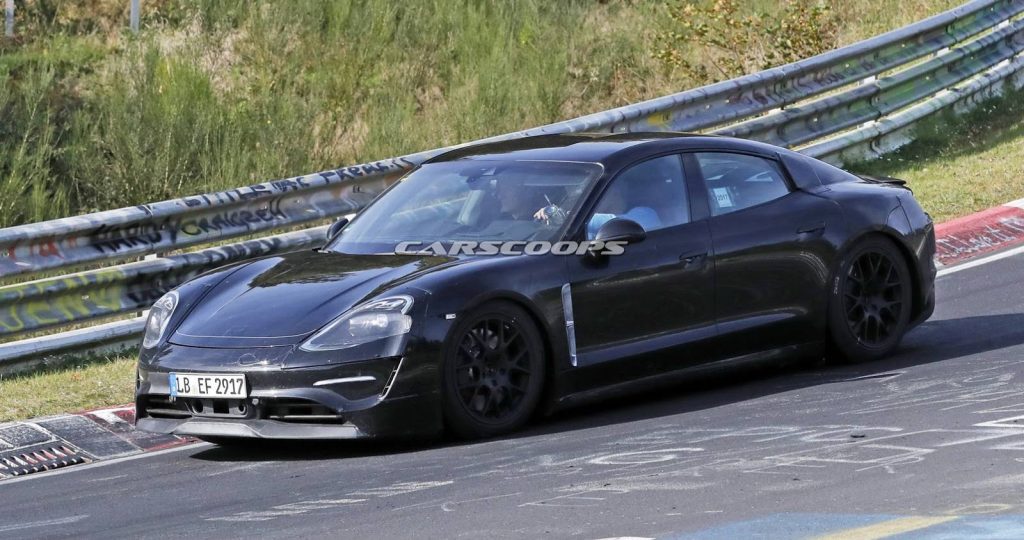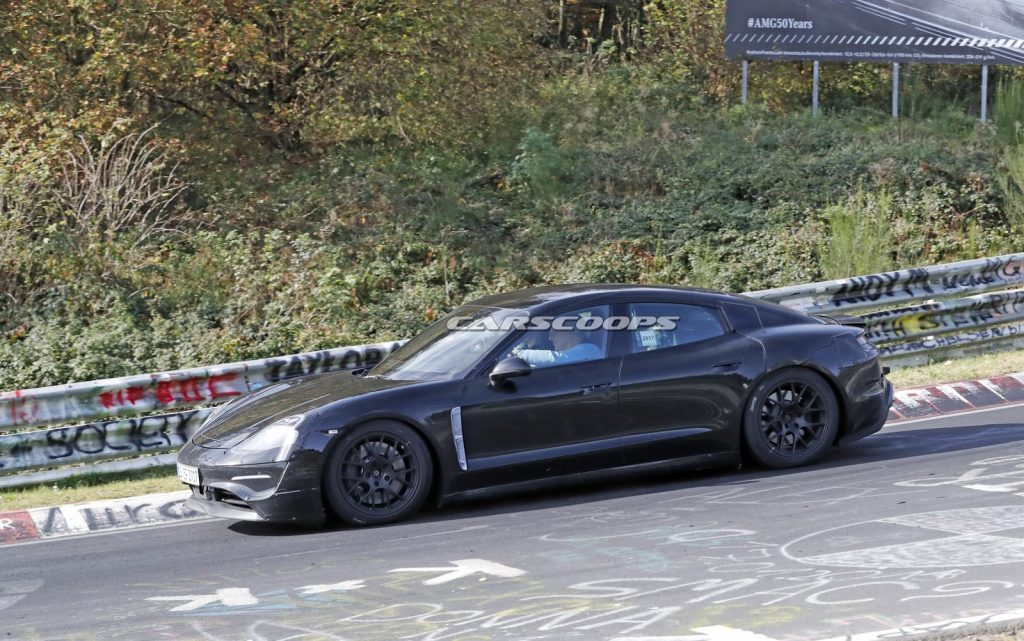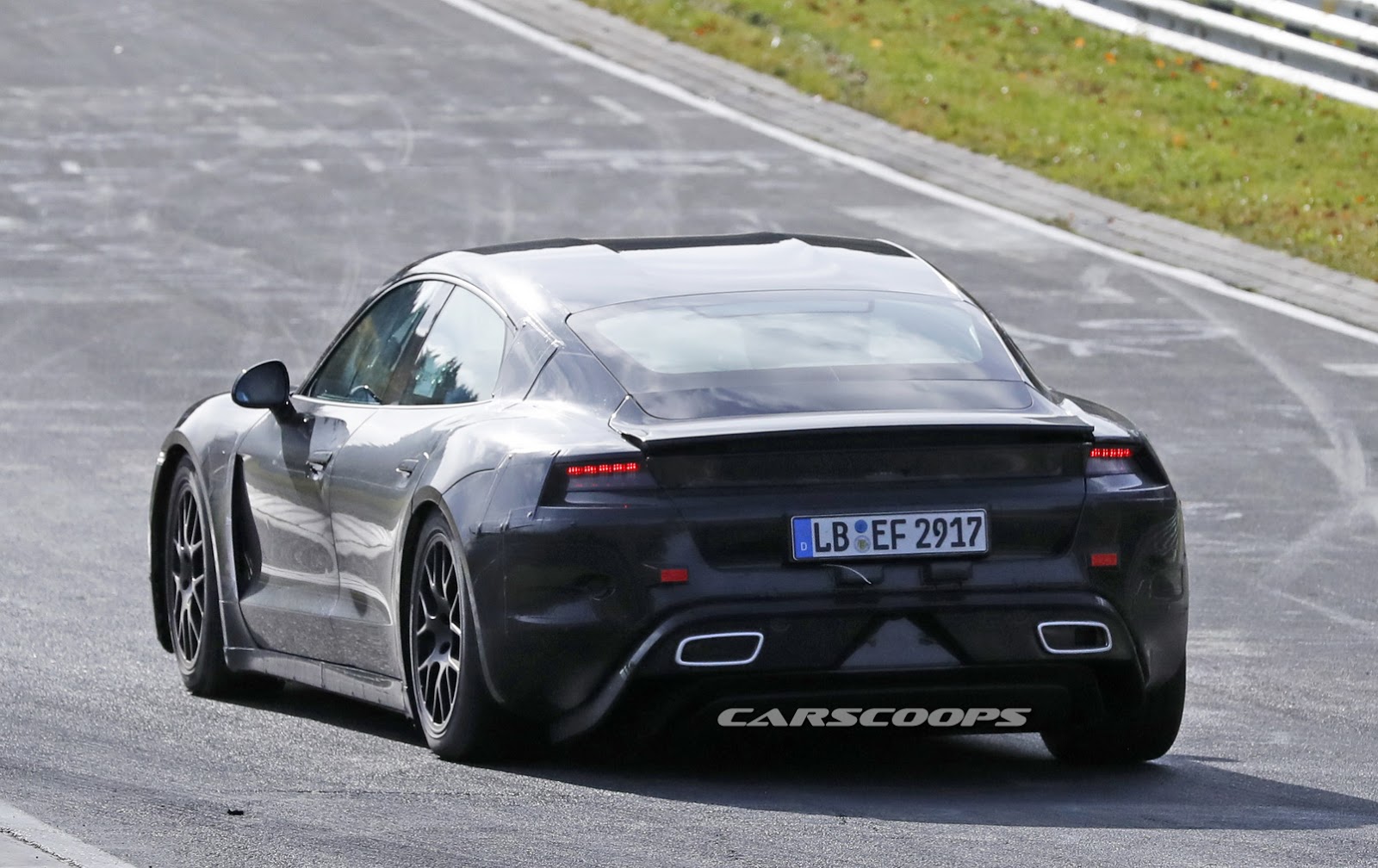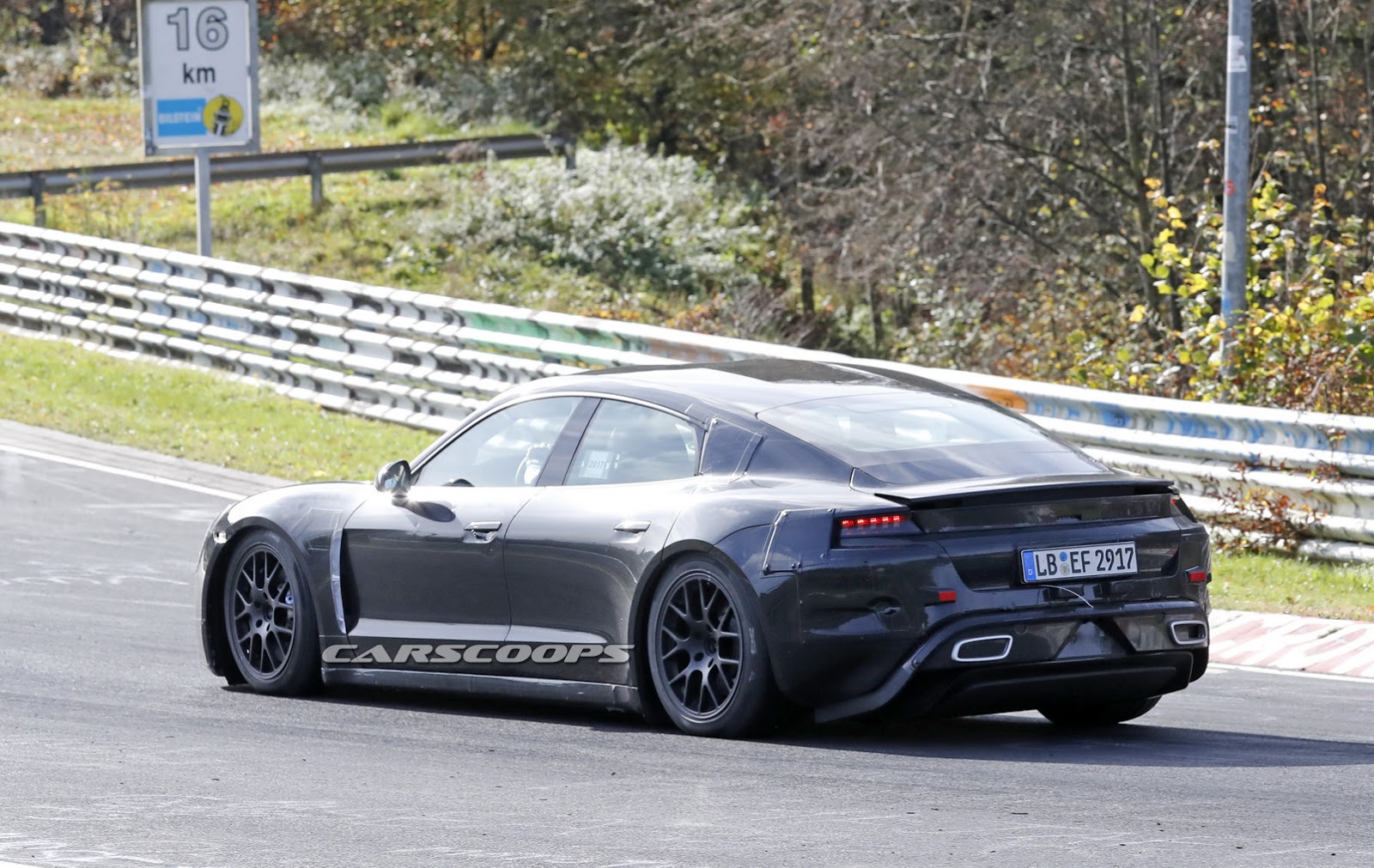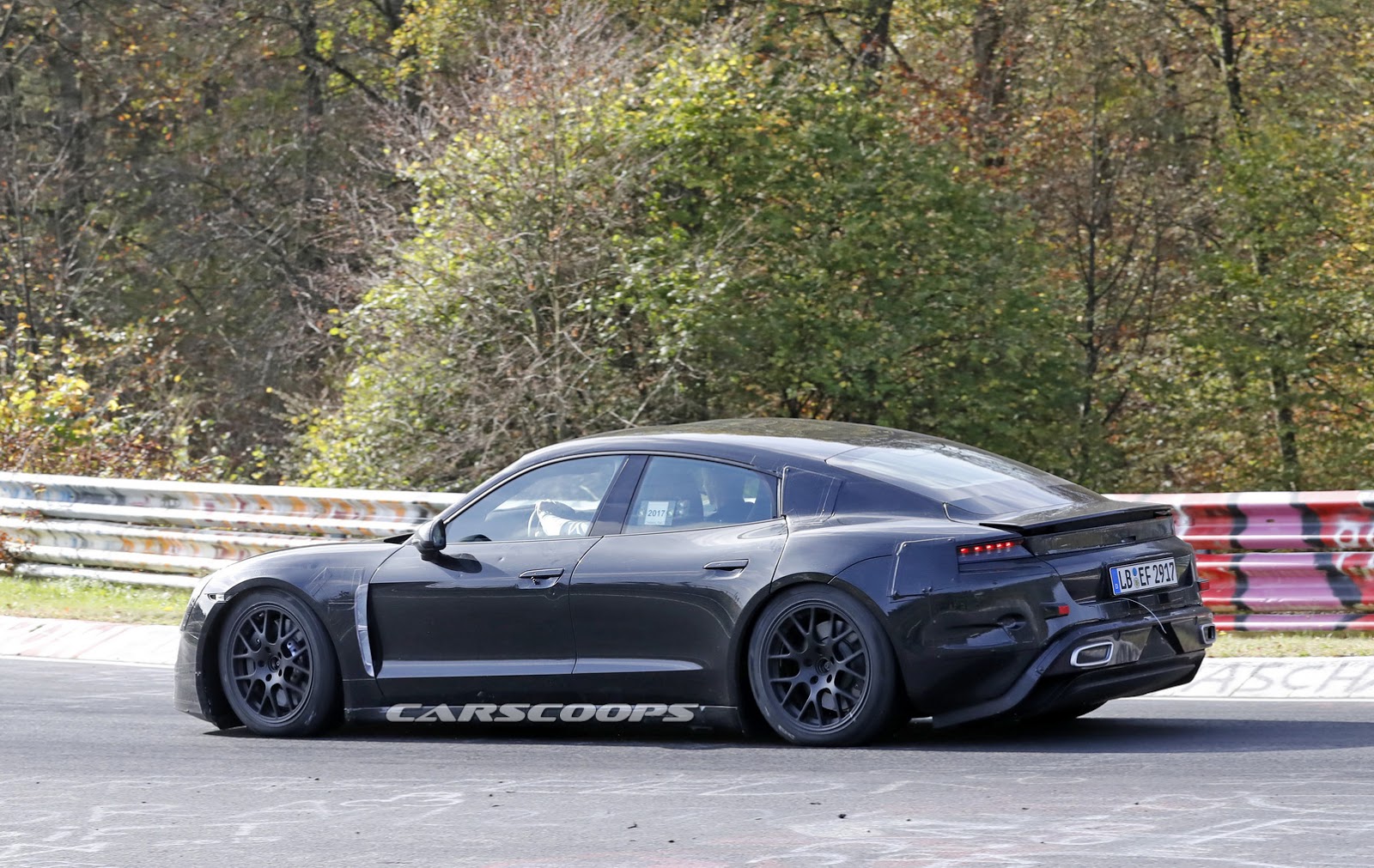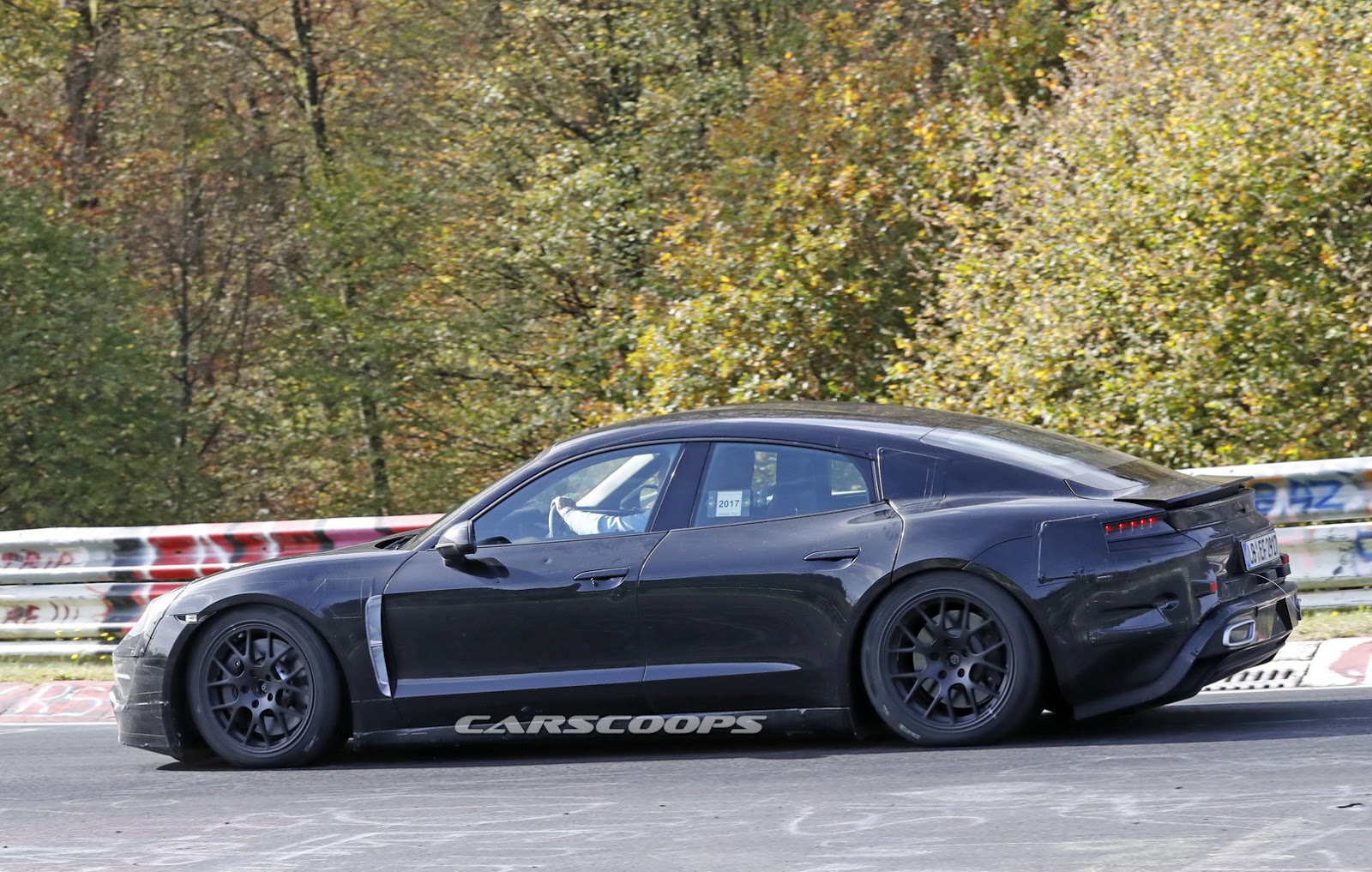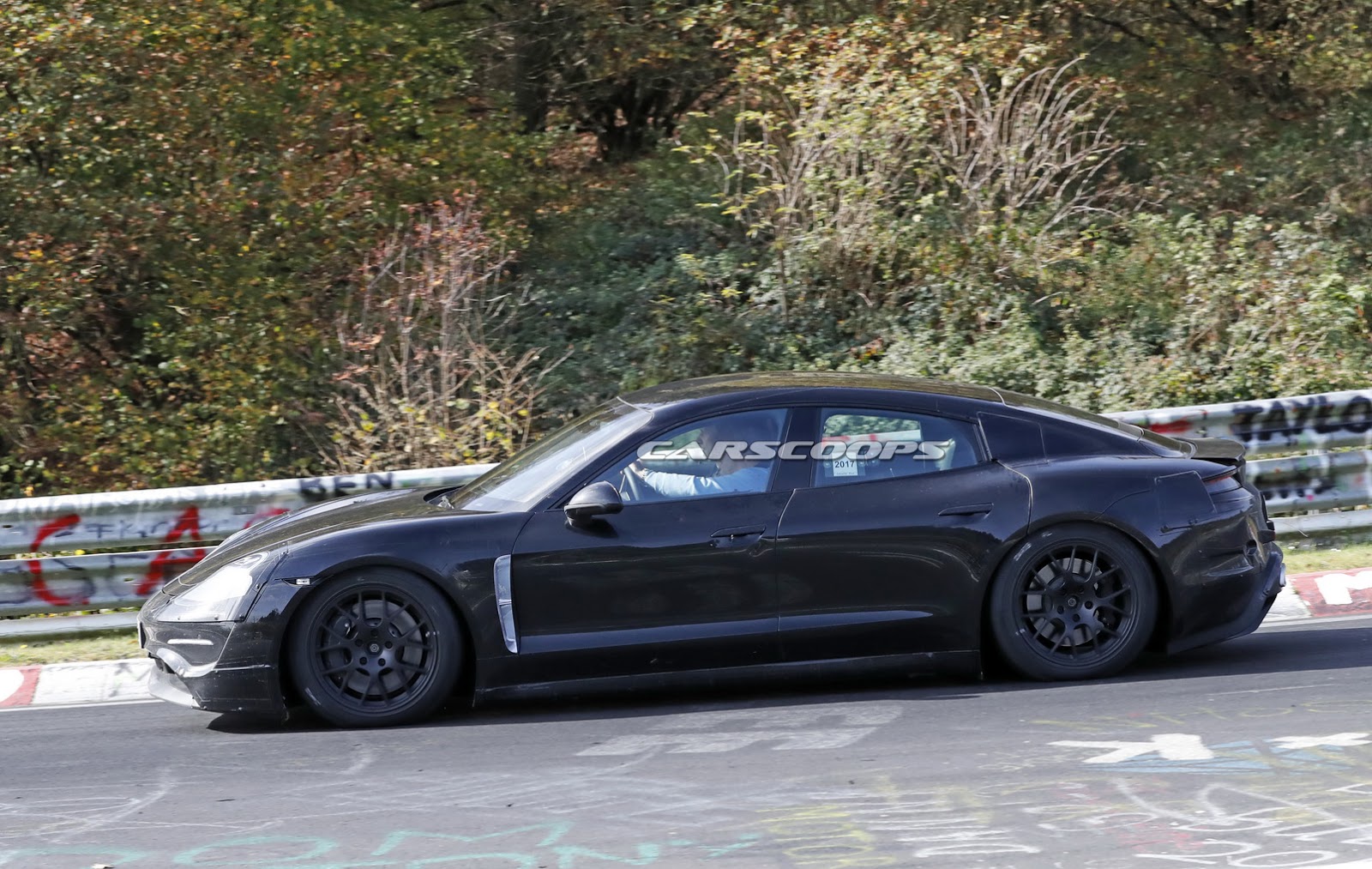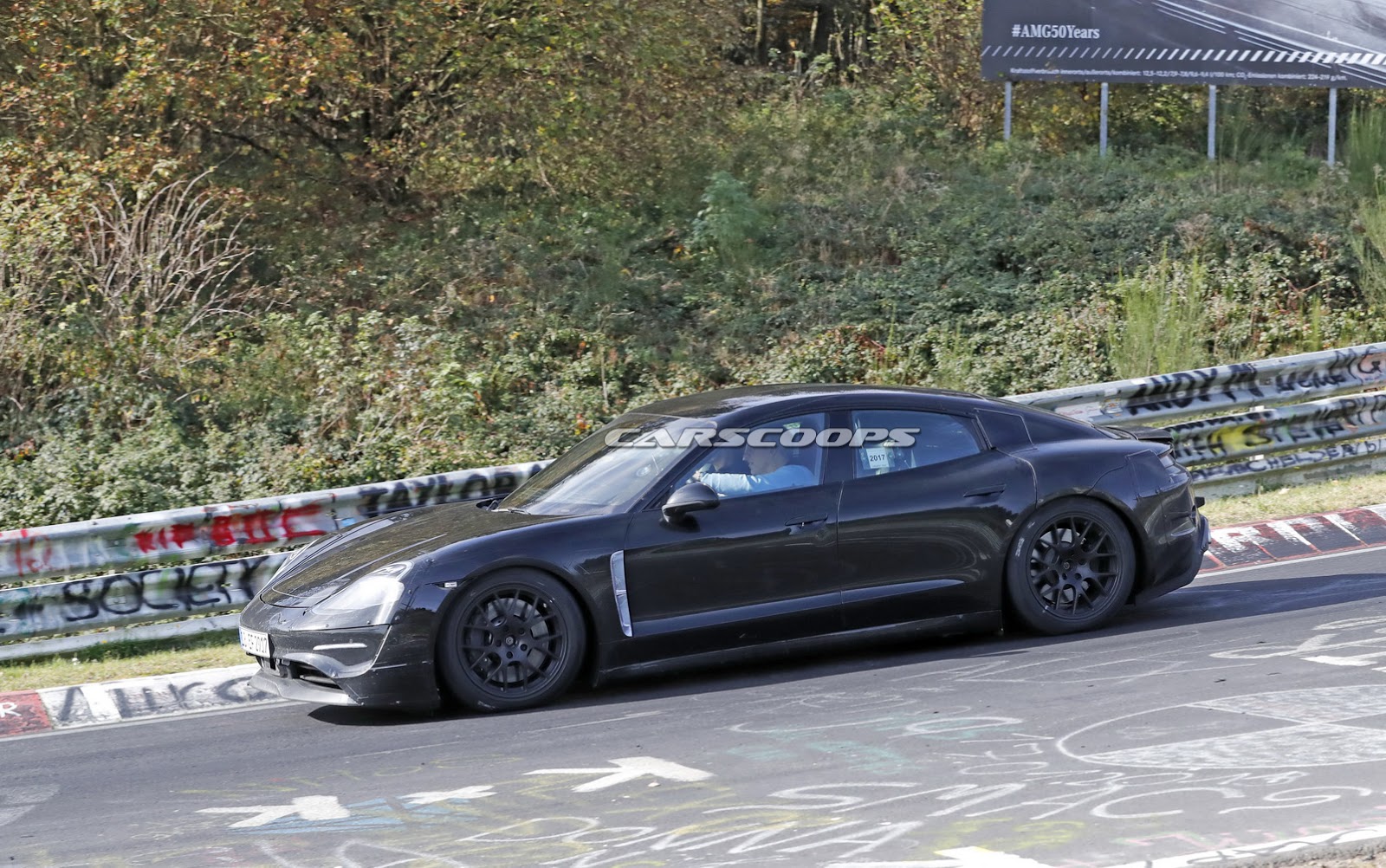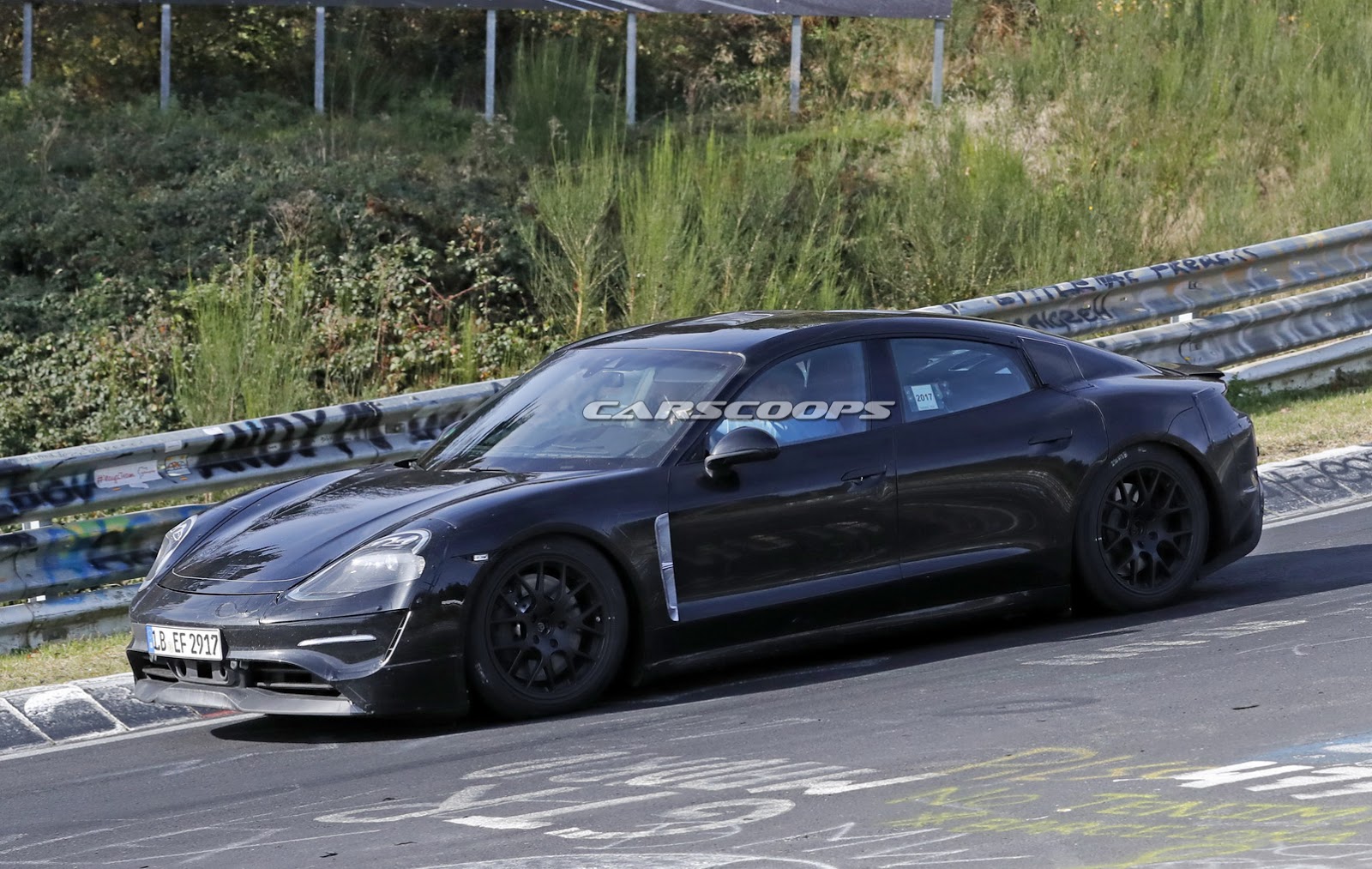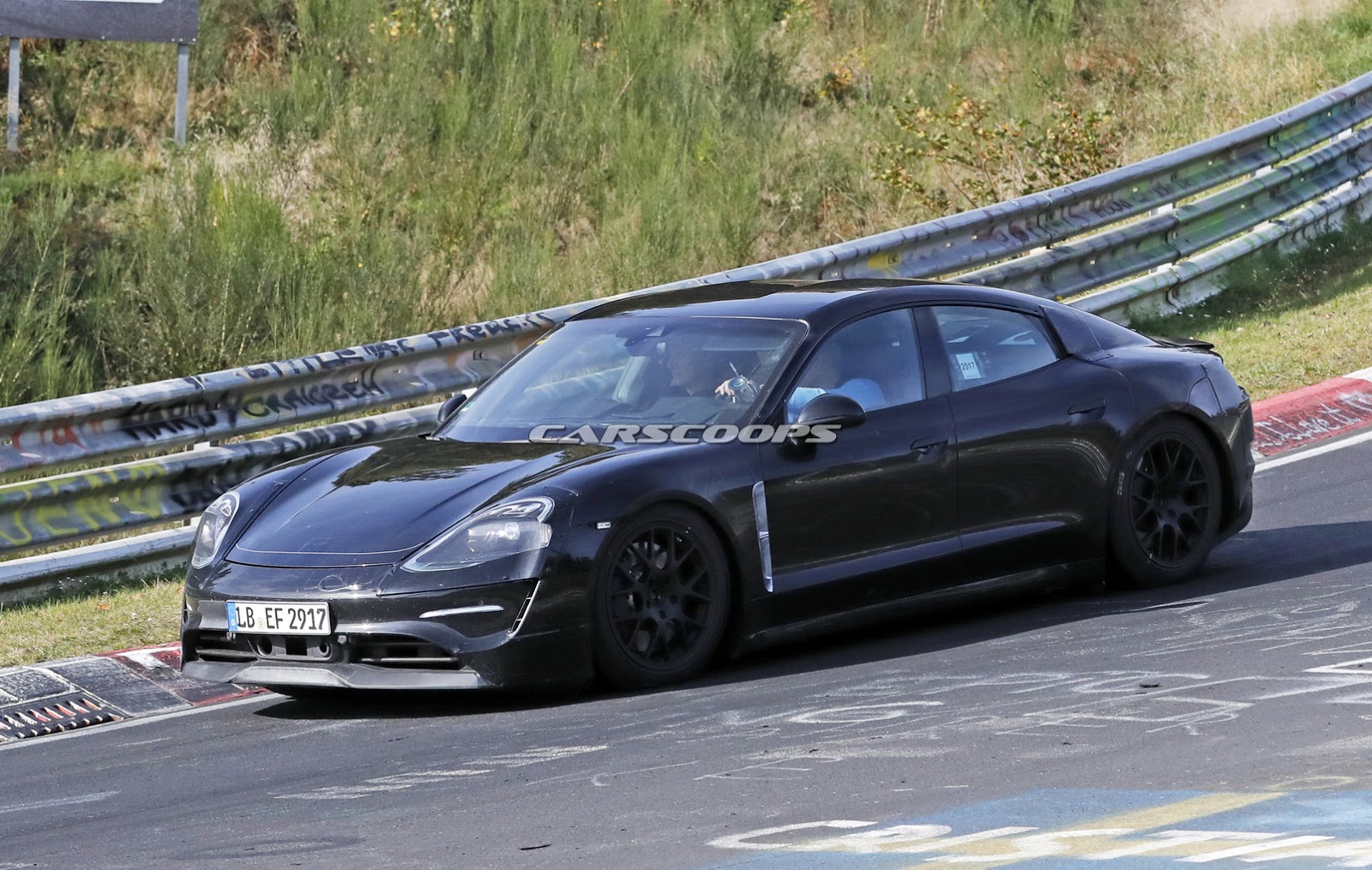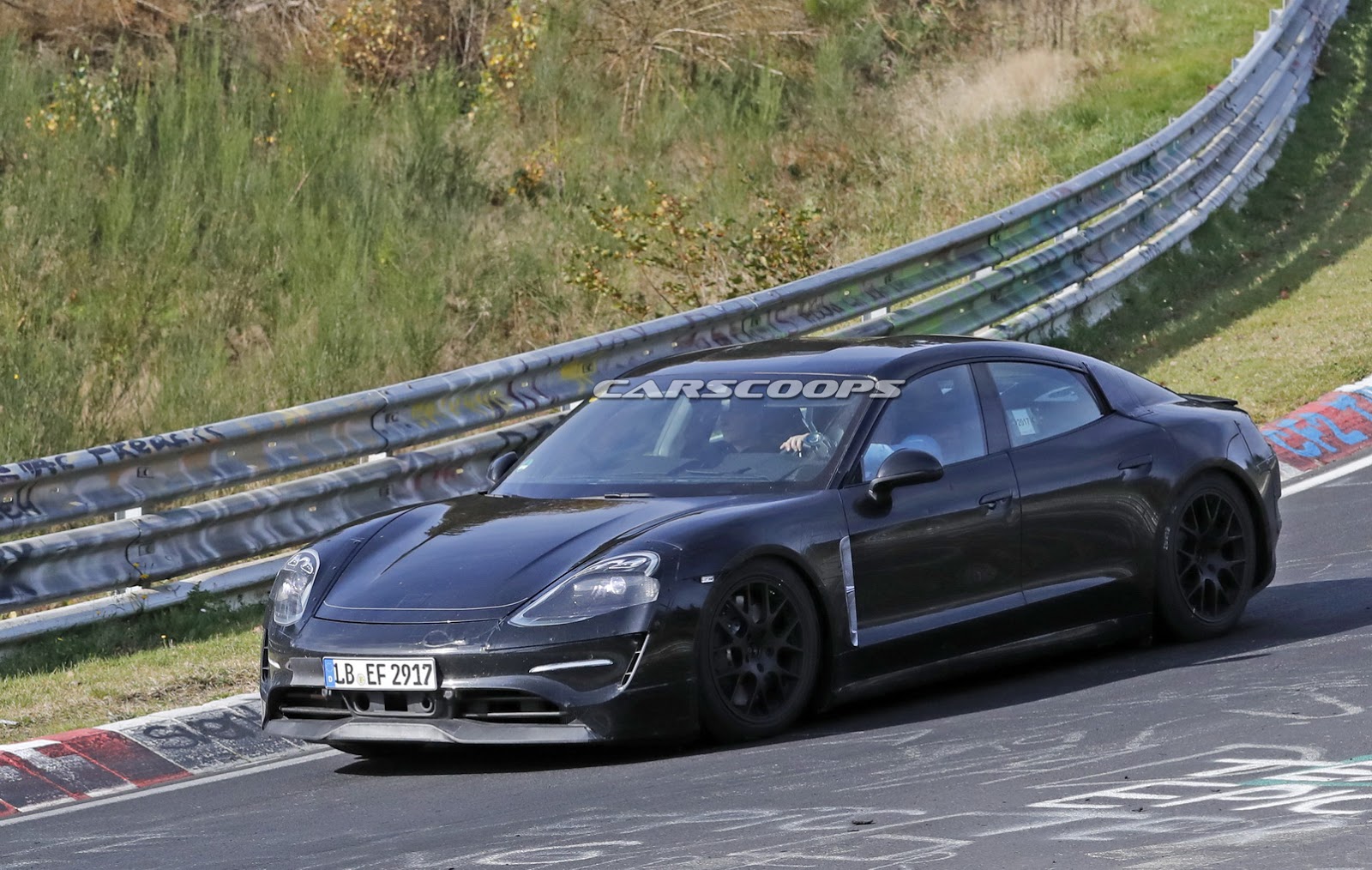The upcoming Taycan may be all-electric, but Porsche wants to convey a clear message that it will stay true to the same values as the rest of its lineup.
That is why the automaker has the ambition for the Taycan to become the fastest series production electric car around the Nürburgring Nordschleife track. Porsche believes the Taycan is capable of achieving a lap time of under 8 minutes but the key here is how deep below that mark it can go.
You may recall that in 2017, China’s Nio set the fastest lap for an electric vehicle with the EP9. The 1,342-hp hypercar posted a sensational 6:45.90 lap time around the Nordschleife.
Something tells us Porsche won’t try to beat that time, for two reasons. It probably can’t and the Nio EP9 is not a series production electric car. It’s a low-volume hypercar limited to 16 units priced at $1.2 million each.
The Taycan has less than half the EP9’s power output. Porsche says the two electric motors supplied by Magneti Marelli will deliver more than 600 hp. As a result, the Taycan will be able to accelerate from 0 to 100 km/h (0-62 mph) in less than 3.5 seconds.
While many EVs can deliver similar acceleration times, the Porsche has a trick up its sleeves: its motors are of the permanently excited synchronous type. Here’s why that matters, in the words of Robert Meier, vehicle model line director for the Taycan.
“Asynchronous e-motors are clearly more affordable, but they have one very important disadvantage. You can only overload the motor once when you want high dynamic acceleration before it quickly reaches its limits the second or third time. That’s fine for most electric cars but not for a high-performance Porsche.”
Furthermore, the Taycan features an 800-volt lithium-ion battery composed of “pouch” cells in a specific power-to-energy ratio. That means it can balance the needs of range with those of performance.



